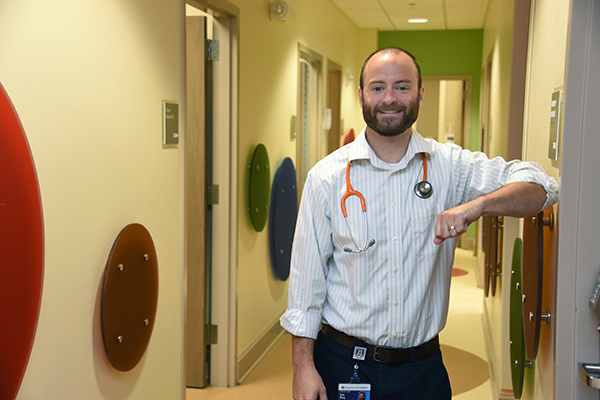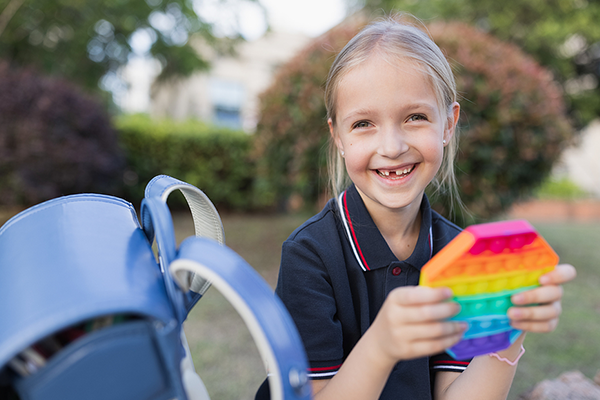Imagine walking into a room filled with strangers to deliver news you know will impact their lives for years to come. One doctor at the Children’s Hospital of Georgia wants to make sure a cancer diagnosis becomes just a memory in a long, happy and healthy life. After all, that’s the way he chooses to live his life each day.
“I was 14 years old when I learned I had B-cell acute lymphoblastic leukemia,” said Dr. Eric Ring, assistant professor of pediatric hematology and oncology. “I remember everything about that day. I remember who was in the room with me, where they were sitting, even that my doctor missed a spot shaving that morning.”
It was the start of Ring’s freshman year when he was diagnosed. He stayed home the first day because he wasn’t feeling well. On the second day, he was in class. While he said he still didn’t feel healthy, he knew he had to go to class. On the third day, he went to the doctor. That visit ended his school year before it really started.
“The thing I was most concerned about were the things I was planning to do later in the year,” Ring said. “I wanted to hang out with my friends, go fishing and hunting with my family. I was worried I wouldn’t be able to do those things.”
Ring spent his freshman year undergoing intense chemotherapy at least once a week to treat his leukemia. For the next two years, Ring went through a maintenance chemotherapy regimen. It meant two years of oral chemotherapy, along with trips to the clinic to check his blood counts. Monthly during those two years, Ring received chemotherapy through a spinal tap or an IV line.
While a cancer diagnosis as a child or teen can play a role in a person’s career path, Ring made his choice through a series of decisions during his time in college, medical school and residency.
“I remember being fascinated in biology class,” he said. “It was the first time somebody explained to me how things worked. Then, I got to medical school and I learned how things were supposed to work and how everything could go wrong.”
Today, Ring works as a pediatric hematology/oncology doctor at the Children’s Hospital of Georgia. For some doctors, surviving cancer would be a story they would choose to share with their pediatric patients and the child’s parents. However, Ring made a decision not to discuss his cancer openly.
“I want my patients to see me as their doctor first,” he said. “I trained for 10 years to provide the best possible care for these children. I want them to trust that I’m making sound decisions based on my medical knowledge, not my personal experiences.”
Ring approaches chemotherapy and immunotherapy treatments for his patients as options that have a lot of power. He said it’s important for doctors to know the different types of medications out there and how to prescribe them safely and effectively. He relates it to the same experience levels you may find at car repair shops.
“A general mechanic can fix most ordinary, everyday cars on the road,” he said. “However, fixing an exotic car requires an extra set of skills and more knowledge about how those exotic cars work.”
When he’s not treating general cancer and blood disorder patients, Ring works as a co-investigator with Dr. Ted Johnson and Dr. David Munn in the Pediatric Immunotherapy Program. He assists Johnson and Munn with developing and executing experimental clinical trials using immunotherapy for children with relapsed cancer. Currently, they are using an experimental drug, Indoximod, along with chemotherapy for children with relapsed or progressive brain tumors. Indoximod allows the patient’s own immune system to better fight their disease. They hope that the work they are doing now will one day improve cure rates for children with brain tumors.
“If there’s one thing I would want others to know, it’s that I don’t think about my own personal cancer experience that often anymore,” Ring said. “I have the same goal for each of the patients I treat. I want them to remember these significant events, but I don’t want them to define the rest of their lives.”





